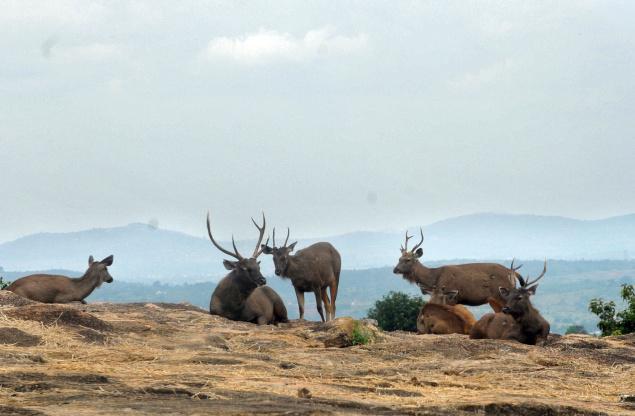Bangalore, September 24: The outbreak of foot-and-mouth disease in the State, which has claimed scores of cattle head this past month, has now reached Bannerghatta Biological Park (BBP) where four animals have died. The zoo has temporarily closed its herbivore safari as precaution against the disease spreading.
Vaccination
Three spotted deer and a nilgai calf have died of foot-and-mouth, according to a press release from the zoo. To prevent this highly contagious airborne disease from spreading, the zoo authorities have begun vaccinating all the 300-odd animals in the herbivore enclosure, using tranquilising guns to fire the drugs. “These include bison, nilgai, blackbuck spotted deer and sambars,” senior veterinary scientist B.C. Chittiappa told The Hindu.
The viral disease spreads quickly, but can be controlled with timely intervention, he said. “It is more painful than it is fatal. Animals generally develop ulcers in their mouth, and we have to treat secondary bacterial infections with antibiotics and modifications in their food.” BBP’s 14 elephants have also been given oral vaccines.
Spread from cattle?
While there is still no clear picture of how the disease entered the park, it most likely came from domestic cattle reared in localities nearby, he said.
This is not the first time that BBP has grappled with a foot-and-mouth outbreak. In 2006-7, it similarly lost several ungulates to the disease.
Says Director of BBP, Rangegowda: “Foot-and-mouth disease has been widespread in Karnataka this year. The Animal Husbandry Department says they did inoculate cattle in August. At BBP we now have several doctors working on preventing the disease from spreading and in curing secondary infection.”
‘Immunity belt’
It is important to ensure that cattle around BBP are vaccinated in order to create an “immunity belt” within a five-km radius of the park, said Dr. Chittiappa.
“The virus spreads through aerosol droplets and is known to be contagious within five km.”
He added that samples have been sent to the Institute of Animal Health and Veterinary Biologicals at Hebbal to establish the strain of the virus that has afflicted animals here.

